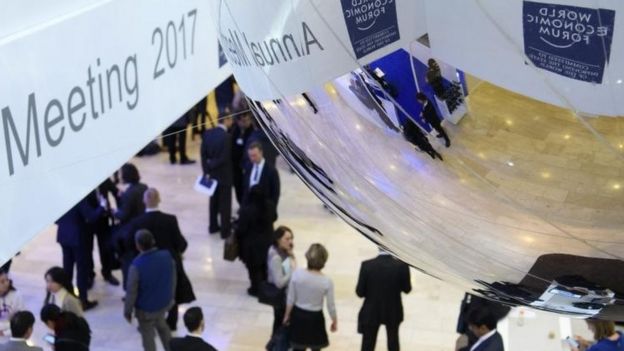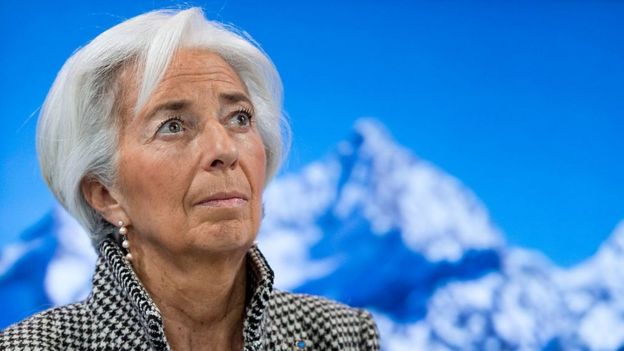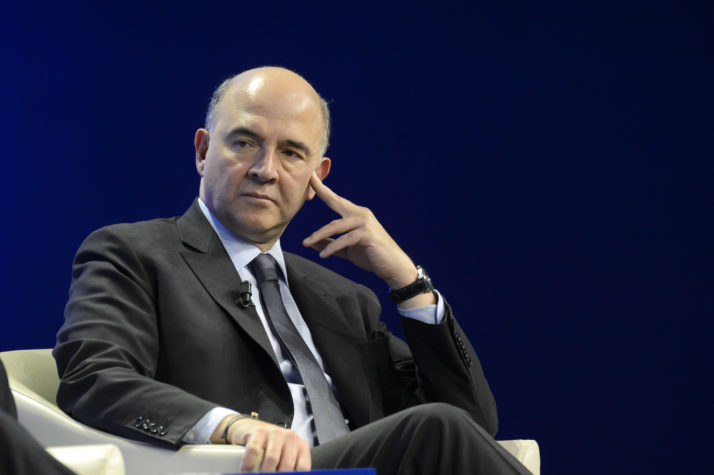Brexit will not be positive for either Britain or the EU, according to Pierre Moscovici, the European Commissioner for Economic and Financial Affairs.
He said growth would be lower in the UK as a result of the decision.
"You cannot have all the advantages of being a member of the club when you are out of the club. I think that our British friends who invented clubs can understand that," he told the BBC.
He was speaking at Davos, where Theresa May is due to speak later.
Mr Moscovici is a former French finance minister and is in favour of greater integration within the EU.
"I am convinced that it is not an example to follow, that it's not positive neither for us neither for the UK."
Mr Moscovici said the split would be damaging "because we are and we must remain strong partners. To us you must understand that it is also a wound".
Room for manoeuvre
On Wednesday, the head of the International Monetary Fund, Christine Lagarde, said there was likely to be further "pain" ahead for the UK as Brexit approached and that any deal with the EU would "not be as good" as membership.
Mr Moscovici reiterated that view: "Brexit means Brexit, which is to say that it is not the same to be out than in, and it cannot be better to be out than in, because it cannot be so.
"We need to re-invent a new kind of relationship that I hope to be close, balanced and positive but that's the outcome of the negotiations not the starting point."
 Image copyright EPA
Image copyright EPA
However, the BBC's Kamal Ahmed said Mr Moscovici's words could indicate there was still some room for manoeuvre.
Asked whether Britain might be able to retain some privileged access to the single market, Mr. Moscovici said: "It's not a denial from my side, but nobody can speculate about that - we have to move step by step."
Kamal Ahmed said Mrs May, speaking at the World Economic Forum for the first time as UK prime minister on Thursday, would receive a mixed reception at Davos since many of the business people present had opposed Britain leaving the EU.
'No cliff edges'
UK business representatives have previously expressed concerned about what will happen if the UK leaves the EU before all the details of a new relationship have been fully negotiated.
Chancellor of the Exchequer Philip Hammond, who is also in Davos, told Bloomberg that there would be "no cliff edges, no sudden changes for business, plenty of time to adjust" following Brexit.
 Image copyright Getty Images
Image copyright Getty Images
Mr Hammond also said the government did not have a target for the "correct" value of the pound and said he had "a high degree of confidence" in the market's ability to find the right level for currencies.
He added that the UK's financial services must be "protected" during any EU deal.
'Financial lungs'
Barclay's chief executive, Jes Staley, told the BBC he did not think Brexit posed a threat to the role of the City of London.
He said there might need to be changes to how the bank worked, with business routed through the Republic of Ireland or Germany - but the bulk of what Barclays did would continue to be in the UK.
"I think the UK will continue to be the financial lungs for Europe," he said. But Mr. Staley added that Barclay's would still have to make changes.
"We may have to move certain activities. We may have to change the legal structure that we use to operate in Europe. But I think it's going to be at the margin and will be manageable," he said.
On Wednesday, two of Europe's largest banks, HSBC and UBS, said they were planning to shift some staff out of the UK as a result of Brexit.
Source: BBC





